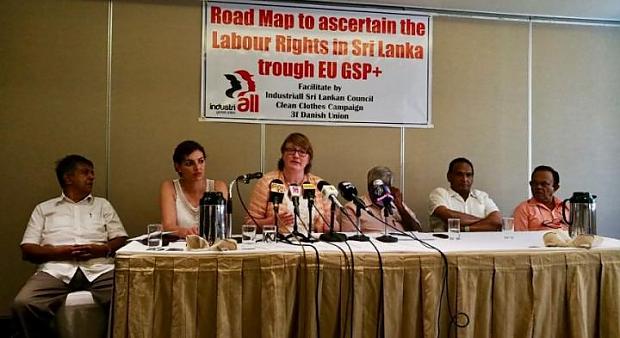Workers in Sri Lanka must share in advantages of trade with EU
Workers in Sri Lanka must share in advantages of trade with EU

SP Euro-MP Anne-Marie Mineur describes herself as pleased by the outcome of her fact-finding mission to Sri Lanka. Under pressure resulting from her visit, Labour Minister John Seneviratne has stated that he will ensure that 50% of the financial gains from additional trade with the European Union will go directly to the island nation’s workers and that he is prepared to make this an enforceable target. He has received support in this from the employers’ organisation Board of Investors (BOI).
“With this proposal Seneviratne is opening the door for the trade unions to play a serious role” says Mineur. “I’ve spoken with workers and trade union people from various sectors and different areas of the country, and as things stand there are far too many reports of intimidation, exploitation and blackmail. Trade unions , moreover, are being undermined by Works Council which are firmly under the control of the bosses. While it’s true that Sri Lanka has signed up to all twenty-seven ILO core treaties, this is not always reflected in practice. In particular the right to join a trade union, the right to conclude collective labour agreements and the right to strike are scarcely respected. The minister appears serious in his desire to change this situation. I will be putting this proposal to the European Parliament and the European Commission. If we adopt the principle that workers must take a share of the gains, this will encourage serious improvements.”
Mineur visited Sri Lanka at the invitation of the Netherlands based Clean Clothes Campaign in order to become better informed about the trade advantages, termed GSP+, which the European Commission is willing to extend to the country and the consequences of this for working conditions. In the company of Spanish colleague Lola Sanchez, from Podemos, which like the SP is affiliated to the European Parliament United Left Group (GUE-NGL), and a number of local and international trade union representatives, Mineur met with the Labour and Development Ministers, the local representative of the ILO, the president of the BOI and around twenty-five rank-and-file workers, most of them from the Sri Lankan garment sector.
- See also:
- Europe
